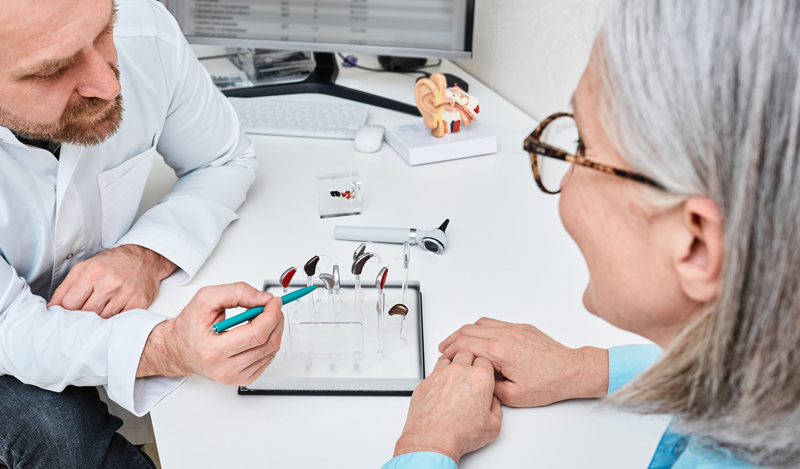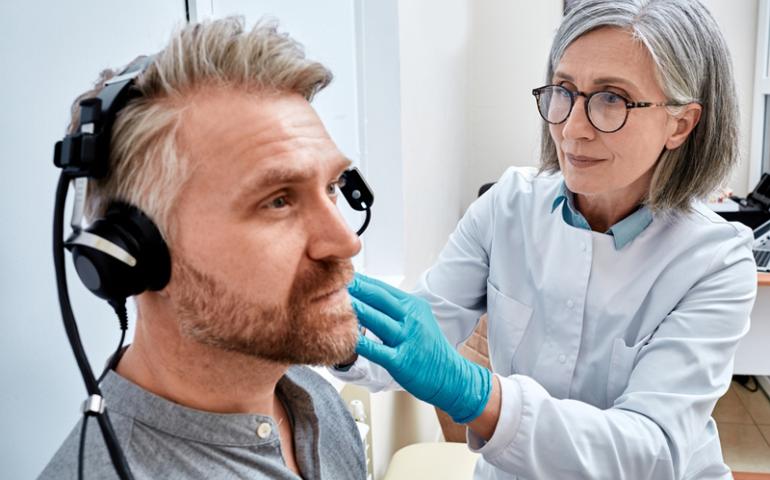Where Should I Store My Hearing Aids?
Hearing aids have revolutionized the lives of those with hearing loss. They allow them to regain their ability to communicate and connect with the world. To ensure that your hearing aids continue to work, you have to protect and preserve them. In this blog, we discuss the importance of storing your hearing aids. We also provide best practices for storing them to extend their lifespan.
The Importance of Protecting and Preserving Your Hearing Aids
Hearing aids are delicate electronic devices to help you hear. They also need proper care and maintenance to function. Storing your hearing aids helps maintain their functionality and performance. Proper storage reduces the risk of damage from moisture, dust, and physical impact.
By taking care of your hearing aids and storing them, you can extend their lifespan. This saves you money in the long run and ensures that you continue to enjoy improved hearing. Storing your hearing aids in a clean and safe area helps prevent the buildup of dirt, wax, and bacteria. Regular cleaning and proper storage contribute to better hygiene. This reduces the risk of infections and discomfort.
Best Practices for Storing Hearing Aids
To elongate the life of your hearing aids, follow these best practices for storing them.
- Invest in a Protective Case. Use a dedicated protective case to store your hearing aids when they are not in use. These cases shield your devices from moisture, dust, and accidental damage. Make sure the case has a secure closure to prevent any exposure to external elements.
- Avoid Moisture. Moisture is one of the biggest threats to hearing aids. Remove your hearing aids before showering or swimming. You should also remove them before doing activities that may cause excessive sweating. Store your hearing aids in a dry and cool place, away from humid environments like bathrooms.
- Keep Away from Extreme Temperatures. High temperatures can damage the internal components of hearing aids. Extreme cold weather can affect battery life. Avoid leaving your hearing aids in direct sunlight. You should also prevent them from experiencing excessive heat or cold. Store them in a temperature-controlled environment whenever possible.
- Protect from Physical Impact. Hearing aids are sensitive devices. You can damage them with accidental drops or knocks. When not in use, store your hearing aids in their protective case. Place the case in a secure location, away from busy areas where you could bump them or knock them off.
- Clean Before Storage. Clean your hearing aids as part of your maintenance routine. Wipe them down with a soft, dry cloth to remove any dirt or debris. It is important to ensure they are dry before storing them to prevent moisture buildup.
- Remove Batteries. If your hearing aids use disposable batteries, remove the batteries before storing them. This prevents any potential corrosion or damage caused by battery leakage. Store the batteries by themselves in a cool and dry place.
- Follow Manufacturer Guidelines. Always refer to the manufacturer's instructions for specific storage recommendations. Different types of hearing aids may have unique requirements. It is important to follow the guidelines provided by the device manufacturer.
Contact Us
Hearing aids are an expensive but vital investment for those with hearing loss. By following these best practices, you can protect and preserve your hearing aids. You need to prolong the lifespan of your hearing aids. If you have issues with your hearing aids, contact us today. We can go over how to store and maintain your hearing aids.






